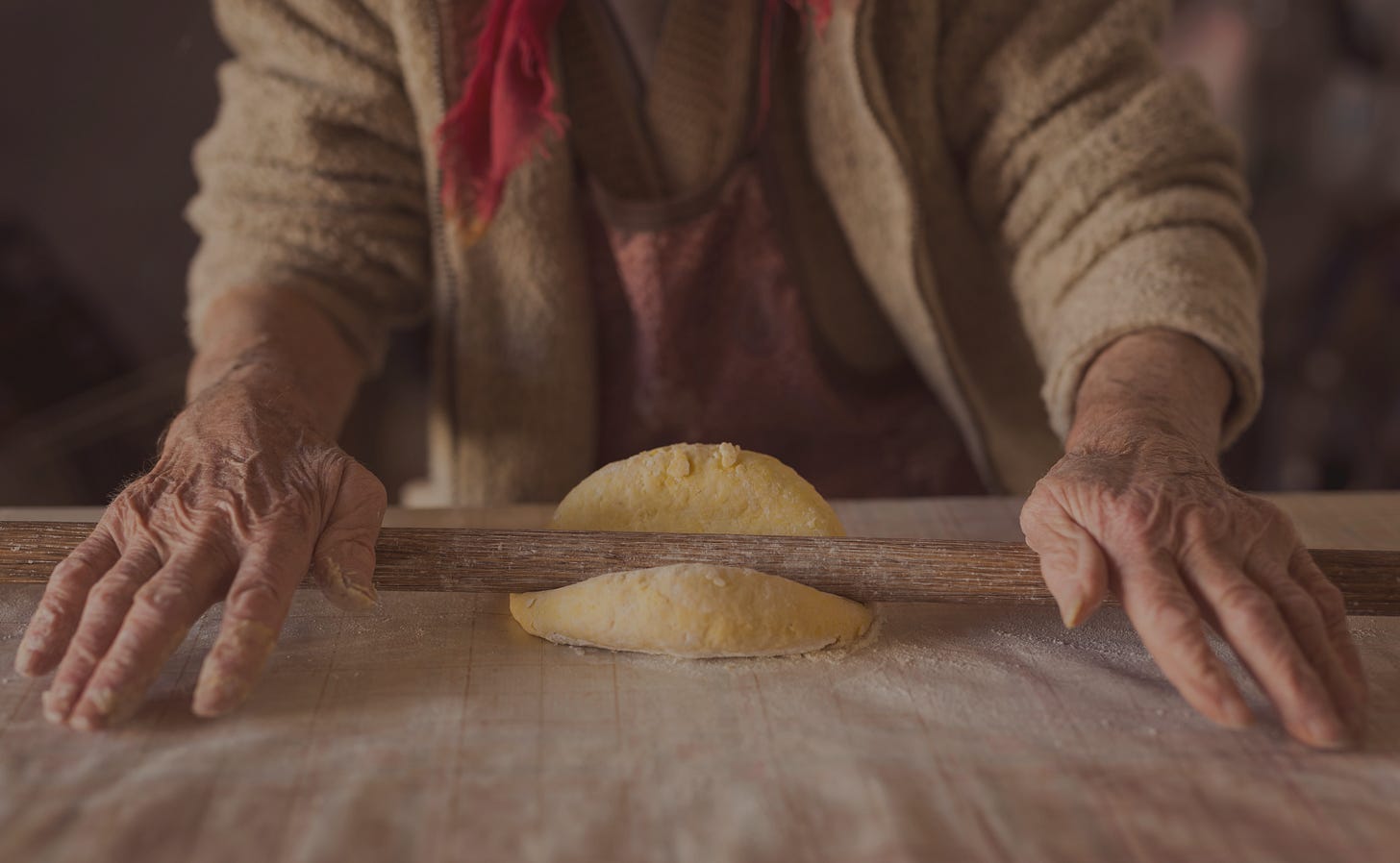Food is a love language: How to speak it when your loved one has dementia
Food is a love language. When the weather cools, that lexicon expands, with dialects in desserts and homemade pasta, latkes and stuffing.
“Many of us express our love for people through food,” says ADRC Executive Director Edith Gendron.
When the person we love is navigating dementia-related brain changes, this form of communication remains relevant, even as the syntax shifts. Sure, we must modify our holiday meals (and the process of preparing them), but that does not make them less meaningful or important.
“Can you look at your traditions and recognize that because of the voyage that you’re on, the traditions are going to change?” Gendron asks. “(You want to serve) food accessible to and supportive of the voyage that you’re on.”
With a few simple substitutes, our recipes can be adapted so that the season’s sweet and savory bites do not further tax our people’s systems.
“Stressing our people is detrimental to the way their brain’s gonna work that day,” Gendron says. “Making simple changes to reduce the intake of added sugar and to increase the intake of leafy greens, and other plant-based products, is beneficial to our brain health, and has been shown to mitigate the severity of symptoms,” Gendron says.
Care Partner Connection previously shared a study that shows carnivores who frequently eat red meat are more likely to develop dementia.
“We have strong evidence that you need to move toward a plant-based diet (not vegan)” Gendron says. “Just come away as much as you can from processed foods.”
Examples of simple substitutes include swapping a meat-heavy lasagna for a vegetable-laden alternative, or skipping the sugar cookie and having a date instead.
“Sugar plums are a real treat that go back centuries,” Gendron adds.
They typically include dried fruit (sans added sugar, in our case) and walnuts, and, if you like it a cocoa powder coating .
Ultimately, the best meal is the one they will eat.
“Old meals they used to love, they might not enjoy anymore because their taste is changing,” said ADRC Program Specialist Ashley Gravatte in the recent Planning for Happy Holidays workshop.
For inspiration, consider reading the free online resource, Cooking Our Way: A Cookbook By and For People Living With Dementia.
Aside from adjusting the menu, we might also reconsider how we prepare our meals, being mindful to include our partners whenever possible.
“When we are talking about cooking or assisting with cooking… We are talking about the brain working in good and healthy ways,” Gendron says.
Our partner may experience a sense of purpose, competence, confidence, and the ability to exercise choice, when she joins us in the kitchen. We are also offering her our time — its own gift.
“You can involve people on any level,” Gendron says. “And (you can ask), ‘What kind of day are they having?’”
The answer to that question will determine her involvement that day — taste testing a sauce or rolling a pasta dough – while we maintain a safe environment, being mindful of heat and sharp objects.
“They will shut down if they feel it’s something they can no longer do,” said Gravatte. “(It is essential to) break down complex tasks into individual steps.”
You’ll also want to brace yourself for the possibility that the great plans you’ve made might not happen, and a back-up is always a good idea.
You might ask yourself if you can postpone that holiday meal.
“Maybe next week will be a better day to have that celebration,” Gendron says.
This flexibility means you may also consider trading a big family gathering for a few smaller dinners, spread over the winter months.. A few loved ones may visit Thanksgiving, for instance, and another small group may join you on Christmas Eve.
You’ll want to be mindful of untended refreshments, and be aware, too, that your partner may see the artificial food often employed in seasonal tablescapes and think that it is edible.
“Only put on the table what the person needs,” Gendron says. “And that’s a tradition that may have to change… We’re not going to embarrass our person. If they’re eating off a Melmac plate, then so are we.”
If we use a tablecloth, we also want to ensure it is in high contrast to the plates. We would avoid a white tablecloth if we were using white plates, for example.
Regardless of how subtle or substantial these shifts may be this year, you can always leverage music and classic holiday films to create a festive atmosphere.
“Get that music going,” Gendron says. “Music is so emotive.”




